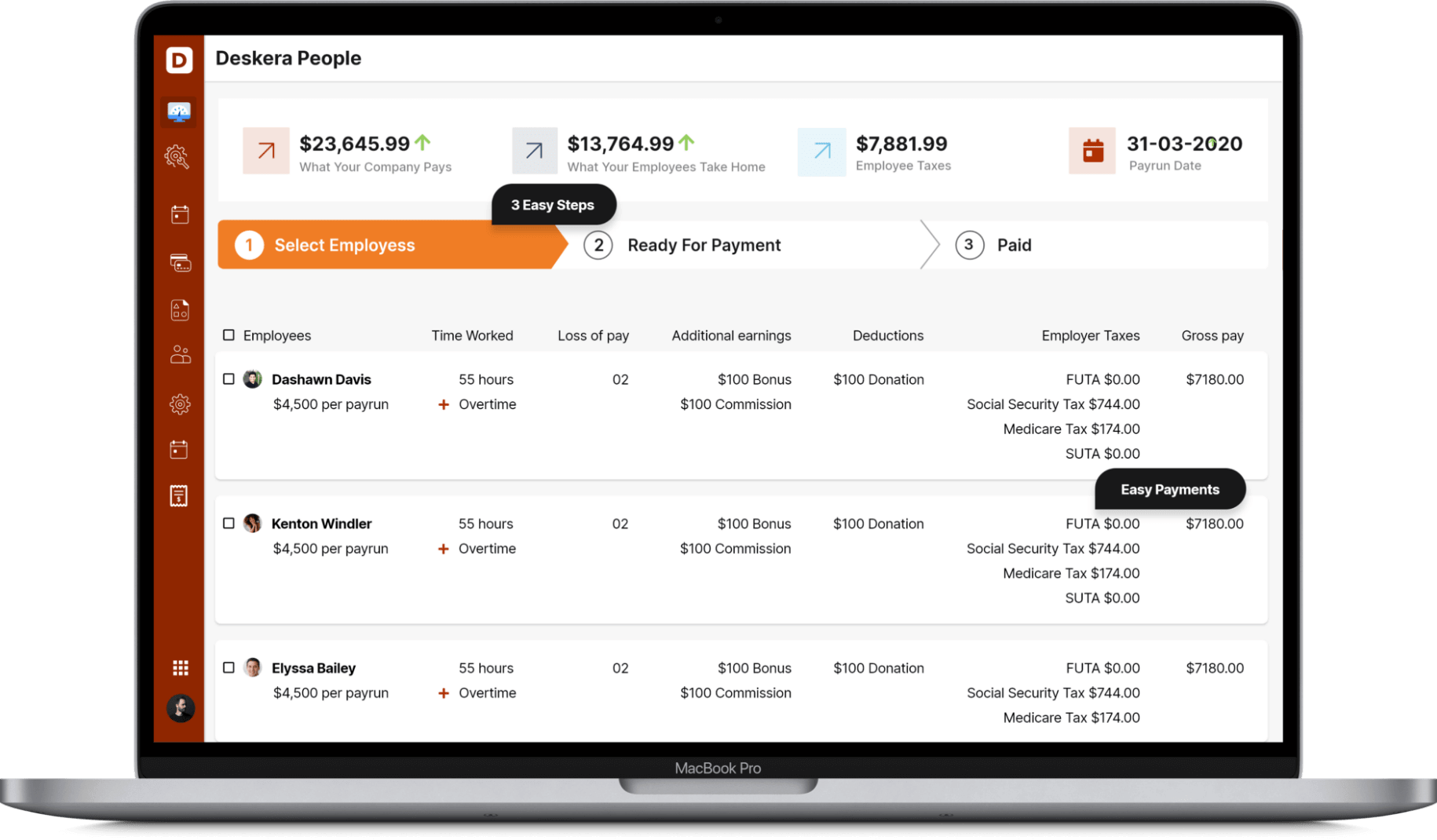Small businesses account for over 99 percent of all businesses in the United States (less than 500 employees). It takes an average of six months for a company to hire someone in startups. You can discover a lot about someone by reading their résumé and cover letter, but there will still be a lot of unanswered questions.

You only have one chance to receive the answers you need during the interview, so don't be caught off guard without the questions you need. You can also go over some of these standard interview questions to help you better prepare for your interview. Following are the topics covered:
23 Mostly asked Questions in a Start-up interview
Why do you believe you'd be a good fit for our company?
Because startups typically have fewer employees than larger companies, it's critical that each team member fits into the overall framework. Investigate the company thoroughly to understand more about its mission, products, and culture. Choose one or two things that are relevant to your qualifications to demonstrate that you would make a good team member and contribute to the company's success.
Consider the following response: "I believe I would be a good fit for the open culture you have established so far. I believe in continual communication to communicate the most up-to-date information and keep tasks on track, thus I believe I would be a good fit for your team. I'm particularly enthusiastic about the company's bigger mission of expanding possibilities for low-income residents."
One of the many objectives of a startup job interview is to learn more about you as a person and how that translates into a strong cultural fit for the company.
When a business creator truly wants to dig in and analyze your comprehension of the company's work environment and goals, he or she will pose a question like this to see if you're deserving of that open position.
He will not only ask candidates why they believe they are a good fit for the company, but he will also ask them why they believe the company is a good fit for them.
It's a two-way street when it comes to hiring and recruiting. As a result, it's critical for employers to guarantee that both they and the candidate have faith in the relationship's mutual benefit and success.
Tell me about your current job and what you do that has the most impact on the company.
Employers should ask it because it's a good interview question: Startups want people that are unconcerned with their job title and simply want to get the job done.
Every startup employee—indeed, every employee in general—is an investment that should pay off. As a result, every employee should earn revenue, whether directly or indirectly. Can you really afford to hire someone who will solely appear on your profit and loss sheet as a cost?)
However, not all employees are aware of this. They've started holding meetings merely to meet before you know it. They began writing reports solely for the purpose of distributing them. Even if all you can afford is "absolutely necessary to have," you initiated efforts that fall into the "good to have" category.
Candidates who don't know how to have the most impact—or who believe their actions have an influence when they don't—should be avoided. People that know what creates value and spend the majority of their time giving it are the ones you need.
They choose areas that bring additional value, such as raising revenue, improving efficiency, decreasing waste, or improving customer happiness, if they do venture out from their primary tasks.
So, what has the greatest impact? Then inquire about any independent projects or activities that the individual has undertaken. Finally, decide whether these initiatives are "good to have" or "must-have." Because the workers you need are always focused on what your company requires: outcomes.
Tell me about your most recent project and what went well and what didn't.
You should be prepared to address behavioral interview questions in any startup interview. What are they, exactly? They're the ones that start with "Tell me about a time when..." and ask you to share an anecdote or experience to demonstrate how you handle various situations. While there is no one-size-fits-all question, behavioral interviewing is essential for a successful hiring process.
This is an excellent example for salespeople and other occupations that need negotiating. Some interviewers may be stumped by the question, "Tell me about the greatest deal you didn't close," as he explains.
Yes, answering these types of questions as a candidate might be difficult. Employers, on the other hand, will find them especially instructive and illuminating.
Interviewers can learn how you deal with unforeseen circumstances and improve moving forward by focusing explicitly on the achievements and failures of a recent project—which is especially crucial in a fast-moving company where both flops and triumphs will be the norm.
Is it easier for you to work alone or in a group?
Because they're still learning what works best for their staff and workflow, startups can frequently be more flexible in terms of working habits. Depending on the project, your employer may also want you to transition between working alone and with a team. Explain your preferred working style in response to this question to assist the recruiting manager in determining how you would fit into the company.
Consider the following response: "Although I am comfortable working in a group, I am most productive when working alone. Coming together for group sessions to discuss the overall project and accept assignments, then handling work separately, has proven to be my preferred team arrangement."
The way you respond to these types of startup job interview questions should vary depending on the startup position you're applying for, but it's usually preferable to sit on the fence a little. Expressing that you like working in groups may create the idea that you can't make decisions for yourself or lack self-motivation, but saying you prefer working alone may portray you as a loner and not a team player.
It's absolutely fair to mention you enjoy working both alone and as part of a team, describing what you appreciate about each and why you wouldn't want to work that way all of the time.
What exactly can you do for us?
When you're interviewing, keep in mind that the employer isn't as concerned with what they can do for you. They don't give much credence to the concept that winning this job will advance your career.
It may sound self-centered, but it's true. Companies are more interested in what you can do for them, and they want to know how you can assist them to achieve their goals. This is especially true at startups, where the goal is to grow and evolve as quickly as possible.
That's why, when it comes to hiring, a simple question like this one can be really useful. This question cuts through the noise and asks you to describe exactly what you bring to the table, as well as how your talents and experiences will help the business achieve its objectives.
Tell me about a time when you were able to do a lot with very little.
Employers should ask it because it's a good interview question: Employees at startups must be able to come up with innovative solutions to the obstacles that come with starting a firm.
The majority of businesses are self-funded, with only a few having access to considerable capital. Forced austerity is even praised by some company owners. To put it another way, they feel that not being able to throw money at problems encourages innovation and imaginative problem-solving.
An excellent startup employee believes in getting more done with less. They are proud of their humble beginnings. They take satisfaction in creating something from what appears to be nothing.
They are unconcerned with luxurious workplaces or well-stocked snack cupboards. They're motivated to use a combination of mental power and elbow grease to solve challenges. When you ask this question, a bad applicant will be perplexed. You'll have to ask great prospects to stop giving you examples because they'll give you so many.
Do you think it's preferable to be good at a lot of things or to be exceptional at one?
A broad range of abilities may be more advantageous in a new business, such as a startup, where you are more likely to be part of a smaller team. Consider whether it would be more beneficial for you to offer one specialized talent or a broad skill set for the position you're interviewing for. When answering this question, keep your own adaptability in mind.
Consider the following response: "While having particular expertise is advantageous, I believe that having a diversified skill set is more vital. I'm more adaptable and ready to meet whatever unexpected obstacles come on any given day because I have a diverse set of skills."
Tell me about your dream job.
Let the alarms go off! Your interviewer is sure to be proud of where they work, so adding that the startup position on offer is your dream employment would be unsurprising. Take advantage of this opportunity to demonstrate to your potential employer how much you want to work for them by demonstrating that you've done your research on the firm and why you believe this is the place for you.
Tell me about a time when you felt your supervisor was unfair to you.
Employers should ask it because it's a good interview question: The finest employees accept responsibility for their errors and learn from them.
While some may swear they've never been treated unfairly, this is nearly impossible to believe. Every manager makes mistakes at some point. Despite their best intentions, every manager makes poor mistakes. Even so, some candidates will decline since it helps them appear more tolerant or easygoing. Great applicants are trustworthy, which is precisely what you want from your staff.
Great applicants will also relate a circumstance in which their supervisor treated them unfairly rather than unequally. There's a significant difference: Great employers handle each person fairly, but not necessarily equally, because each employee is an individual.
In any corporation, for example, remuneration should be based on performance rather than tenure. Responsibility, authority, and liberty should be earned rather than handed down. Listen to the candidate's responses and assess if their definition of "unfair" matches yours and the type of company you want to start. There is no right or incorrect answer, but there is a "proper" definition for your company.
What is the most helpful piece of advice you've recently received?
In a startup atmosphere, you'll need to be willing to receive advice, assistance, and constructive criticism just as much as you'll need to be fearless in your innovation and experimentation.
As a result, don't be surprised if a company entrepreneur approaches you and asks you to give some of the best advice you've recently received. It's a fantastic way for them to see how open you are to new information and what messages stick with you and have an impact.
This is a great question to ask if you have a feeling the candidate has an ego".
In five years, where do you see yourself?
Companies don't want to spend time, money, and effort on a new employee they know will quit as soon as they can put your company on their resume. They also don't expect every employee to stay for a long time.
Jobs in fintech and startups are generally fast-paced, thus it's doubtful that you'll be with that company in five years based on probability. However, since you don't know for sure, don't tell them you've already made preparations to work somewhere else. Explain honestly where you see your career going and how you believe their organization can assist you in achieving your objectives.
What appeals to you the most about working for a startup rather than a large corporation?
From the structure to the opportunity for team members to offer opinions, startups can differ from established organizations in numerous ways. It's beneficial to express what you like about startup culture that you wouldn't find at a larger corporation.
To demonstrate to hiring managers you want to work for them, try to describe why you enjoy the specific organization.
Consider the following response: "It's a great opportunity for me to work with a new company. I notice that you are really enthusiastic about your work, and I would like to share that enthusiasm and help your firm succeed. I'm especially interested in sharing my sales and marketing talents to help your firm improve and expand."
Describe yourself in one word.
In order to determine whether you'll be a good fit for the open position, startup owners will ask you a series of questions. Few, though, get to the heart of the matter as effectively as this one does. If they say that they are both a visionary and an accountant, you may have selected the incorrect individual. You've got a winner if they are accountable and they're in ops."
A critical core piece of my interview process is taking the time to genuinely learn what makes a person tick and what's important to them. Of course, you must answer this question (and all others) truthfully.
But, before you go in for your interview, think of a few adjectives that not only define you, but also suit the job's needs and obligations. That way, if this inquiry arises, you'll be prepared with the right adjective.
As tempting as it may be, don't see this question as an invitation to delve into your personal history. You may want to talk about your formative years in rural Botswana playing with baboons, but trust me when I say that your interviewer does not want to hear about it. Consider this an opportunity to inform them, as concisely and briefly as possible, why you are the ideal candidate for this startup role.
Tell them about your education, work history, and any current work experience you've had, but make sure it's all relevant. You should be thinking about how you can use this question to demonstrate how you will add value to the firm at all times.
Tell me about a moment when you made a judgment based on limited information.
Employers should ask it because it's a good interview question: Great startup employees, especially early on, are prepared to take calculated risks and learn from the outcomes. It's great to have detailed action plans. That is why the majority of business owners prepare detailed business strategies. However, those plans can change in a matter of days.
That's why many successful startups don't look anything like they did when they first started. Smart business owners adjust, tweak, and move to match changing market conditions.
Great startup employees do, too. You'll need members on your team who are willing to follow Jeff Bezos' decision-making process. If a decision is simply reversible, Bezos advises not to overthink it. Otherwise, you'll be too cautious, risk-averse, and unwilling to try new things.
Employees who work for a startup spend some of their time planning and the majority of their time doing. Because you can always learn from your past mistakes. But you can't learn anything if you never do anything.
Do you prefer to work remotely or in person?
Many companies are beginning to use remote workplaces, therefore the recruiting manager may ask you this question to check if you are comfortable working from home. Describe your ideal configuration, but try to be as flexible as possible.
Consider the following response: "Working from home gives me a great deal of flexibility. Because I don't have to commute, I can start my day a little earlier or work a little later. In an ideal setup, I would work largely from home, with periodic in-person team meetings to review progress."
What fresh ideas would you apply if you were in this position?
In addition to proving your ability to add significant value as an employee, businesses want to know that you'll be ready to hit the ground running and get immediately to work driving business success. Most startups are seeking someone who will not only keep things on track but will also innovate.
As a result, a question like this in a startup interview is pretty typical. They want to know that you're not only familiar with their company's operations, but also that you'll be able to contribute with smart, strategic, and innovative ideas. To further establish a candidate’s self-direction and ability to learn independently.
Verbally test an applicant's understanding of a subject. Tell them you'll be in touch with more questions in a few days (not necessarily about that topic). Send them additional sophisticated resources on the subject and, a few days later, ask them questions based on them.
Tell me about an instance when you went above and beyond for a client.
Employers should ask it because it's a good interview question: Businesses that last are founded on the foundation of genuine client loyalty, which necessitates the development of genuine customer relationships.
It's a pastime, not a business if you don't have any consumers. That's why strong startups offer more than just a transaction; they're always looking for ways to alleviate their clients' problems. When you deliver an unrivaled level of service and customer care, that's when true customer loyalty begins.
Great applicants have a lot of "out-of-the-box" experiences. They are willing to offer examples of when their activities went beyond formal processes and rules. They were thinking about the customer rather than themselves. When they didn't always follow what was written, but instead did what was right.
Because outstanding startup employees aren't concerned with being correct—they're concerned with doing the right thing. Don't settle for the same old interview questions when it comes to building a successful startup team from the ground up. Leave those to employers who are willing to make do with average personnel.
Take the time to ask probing questions about the talents, attitude, and experience you'll need—as well as the culture you want to foster.
And don't stop interviewing people until you've found the right fit. Because settling for okay when you may have outstanding is the last thing your company can afford.
What is your biggest weakness?
It's less important to know what your flaw is than it is to know how you can compensate for it. You will demonstrate your capacity to take initiative and likely rise in the interviewer's judgment if you can show that you recognize yourself as having a particular weakness and then illustrate in some detail how you are actively working on it to turn it into a strength.
Being honest is crucial, but do not mention having a deficiency in an area that is a need for the job! Another way to respond to this question is to discuss a flaw that has nothing to do with the position you're applying for. This is a safer approach to the question, and while it will not directly demonstrate your aptitude for the job, it should not jeopardize your chances of landing the job.
When you're on vacation, how often do you check your work emails?
You could be tempted to answer something like, "I check my phone every waking minute, and I even have a waterproof phone cover so I can check it when I'm swimming," in which case you're effectively telling the employer you don't have a good work-life balance and are on the verge of burnout. "Never" is another option. "I'm outta here as soon as that office door shuts behind me!" You've done very little to show that you're serious about the job.
Obviously, the correct response is to speak the truth, but without going into detail. Tell the interviewer that you'll be checking in case of an emergency, but make it clear that you're taking some time for yourself and to recharge your batteries.
What are your plans if you are unable to secure this position?
When you're in the middle of an interview, it's easy to get discouraged thinking about what you'll do if the opportunity doesn't work out. In a company, though, rejection, disappointment, and setbacks are all too common, thus recruiters may ask about this depressing topic.
It gives them insight into a person's resiliency and ability to anticipate ahead, as well as, to some extent, their risk-taking practicality.
If a candidate can demonstrate that they have considered alternative next steps and have a plan in place for other developmental activities or strategies to achieve their desired goal—whether it is the role they are interviewing for or a more senior role they are aiming for—then they are more likely to take similar approaches in the workplace.
What would your friends say about you?
Many interviewers prefer to ask this question in order to determine whether you are the suitable type of person for the startup position and company.
So, think about what kind of personal traits might be useful for this function, and focus on the ones that best suit your own personality, in preparation for any startup job interview questions presented in this way. But don't be a liar. Remember that an interview is a two-way street, and it's as much about you finding a startup job that you desire as it is about whether or not you're a good fit for the company.
Could you tell me something [completely unrelated]?
In early-stage startups, you'll be required to wear multiple hats, which may include taking on duties that aren't directly related to your job description or skillset. It's part of what makes a startup environment so exciting, but it can also be difficult if you're not ready to put yourself out there and move outside of your comfort zone.
An interviewer might ask you a question about something completely unrelated in order to gauge your willingness to roll with the punches. Employers do this to applicants to "see how they manage the circumstance and what kind of reaction they come up with," according to their website.
What are your compensation expectations for a startup?
Before the interview, you should have a good notion of what an industry standard for the role would be for someone with your expertise. Your interviewer will undoubtedly know, and inquiring about it will help them determine whether or not they can afford the initial salary you're looking for.
Don't feel compelled to state a lower wage than you would be satisfied within the hopes of securing the work. This, on the other hand, sends the message to the interviewer that you don't believe you're worth a higher initial pay. If they believe you are the best candidate for the job, they will expect you to be adequately compensated.
If you believe it is too early in the interview process to discuss wages, it is absolutely appropriate to indicate you need to learn more about the role in question before discussing compensation.
Other important interview questions
- What element of your CV do you think you're most proud of?
- Do you intend to continue your study while you are employed here?
- Where did you go to school?
- How do you stay motivated?
- What did you study in school?
- What are your interests?
- What three characteristics best define you?
- What are your individual objectives?
- What motivated you to leave your former position?
- Do you want a job that pays well, gives you a lot of flexibility, or allows you to do something meaningful?
- How long did you work for your prior employer?
- How did you feel about your prior coworkers?
- Is there anything about our organization that would dissuade you from working here, based on what you know about us?
- What influenced your decision to choose this career path?
- How much do you know about our company?
- Do you intend to apply for any other positions?
- What is our company's founder's name?
- Do you believe there is anything that might be done to alleviate these problems?
- How much do you intend to earn?
- Do you think there are any other benefits that would be appropriate?
- Who are our primary rivals?
- Can you give an example of a deal-breaker that would prevent you from working for a company?
- What type of work environment do you believe would be a poor fit for you?
- How did you find out about the job?
- What challenges have you encountered in achieving your objectives, and what efforts have you taken to overcome them?
- Can you offer an example of a career objective you established for yourself and how you achieved it?
- What are your greatest assets?
- How quickly can you pick up a new application and use it?
- Do you work with a mentor?
- Describe a period when you had to juggle your professional and personal obligations and how you did it.
- Who do you admire and look up to as a role model?
- What books have influenced you to make changes in your life?
- What types of sacrifices are you willing to make in order to obtain this position? Is it possible for you to relocate if necessary?
- Have you taken any courses or programs to further your education?
- Who has aided you in becoming the person you are today?
- How do you balance work and personal obligations?
- How do you prioritize tasks so that your personnel aren't overworked?
- Describe a situation in which you had to strike a balance between the needs of multiple stakeholders.
- Do you mind working on holidays or weekends?
- Do you spend a lot of time thinking about ideas to better your current job in the evenings?
- Have you ever had to make a personal sacrifice on behalf of a company?
- Can you explain why your resume has a gap in it?
- Would you rather work for a long time for the same company or take a job that suits you at the time?
- In that case, what would you have done differently?
- Can you tell me about the most difficult group you've ever had to lead? What efforts did you take to ensure the success of the team?
- Are you a follower or a leader?
- Could you repeat a former coworker's remark on your management style?
- As a leader, what types of risks do you believe are necessary?
- If you were given the task of leading a team that wasn't performing well, what steps would you take to get it back on track?
- Can you give an example of a time when a team member wasn't contributing their fair share and how you dealt with it?
- Do you believe that seniority defines leadership?
- Could you give an example of a time when you didn't get along with one of your subordinates and how you dealt with the situation?
- How would you handle a situation in which a boss requested you to perform something you believed was harmful to the company as a whole?
- What were the strengths and weaknesses of your prior boss?
- Do you feel at ease making financial decisions?
- Do you mind being held responsible for your employees' mistakes?
- On a team, what unofficial role do you normally play?
- Do you feel comfortable taking on obligations that aren't part of your job description?
- What was the size of the last team you worked on?
- Have you ever worked in a larger group?
- How do you think you influenced the outcomes of the teams you've previously been on?
- How would you handle a situation in which a boss requested you to perform something you believed was harmful to the company as a whole?
- What were the strengths and weaknesses of your prior boss?
- Do you feel at ease making financial decisions?
- Do you mind being held responsible for your employees' mistakes?
- On a team, what unofficial role do you normally play?
- Do you feel comfortable taking on obligations that aren't part of your job description?
- What was the size of the last team you worked on?
- Have you ever worked in a larger group?
- How do you think you influenced the outcomes of the teams you've previously been on?
- Can you describe an instance when a member of your team lost their bearings and the steps you took to get them back on track?
- What is the biggest blunder you've ever made while delegating tasks to another team member?
- What do you find the most challenging aspect of being a team member?
- Can you give an example of a period when you were in charge of ensuring that employees fulfilled their goals?
- What are your thoughts on constructive criticism?
- How do you go about looking for challenges to solve?
- Have you noticed that your problem-solving technique differs from that of your previous coworkers? What do you mean by that?
- Have any of your employees ever objected to the way you solve problems?
- Do you have the ability to make swift decisions?
- Can you think of an instance when you were compelled to make a decision considerably faster than you would have liked?
- Can you offer an example of a decision you took that was unpopular? How did it go over with the public, and would you make the same decision again?
- Could you give an example of a time when you used this method to solve a problem?
- Can you give an example of a moment when you had to solve an issue by thinking outside the box?
- What do you believe the most significant impediments to creative problem solving are?
- There are a lot of scenarios where you don't have enough information to solve a problem. Can you offer an example of a time when this happened to you and what you did to receive the knowledge you needed to proceed?
- What tools or resources have aided you in achieving corporate objectives?
- What is the most brilliant idea you've ever had?
- What do you consider to be the most significant factor in resolving a problem?
- How do you approach data analysis?
- Have you ever needed to talk with a union representative or a supervisor to obtain special accommodations in order to cope with stress?
- Can you share an example of a successful presentation you've given before?
- Have you ever had to give a presentation with little or no time to prepare?
- Can you recall a time when you had to solve a problem through written communication?
- What types of people do you find challenging to work with or be around?
- Can you think of an instance when you had to persuade someone to do something they didn't want to do? What was the end result?
- When has it been that your perseverance has paid off?
- Do you feel that with enough time and resources, you can overcome your current challenges?
- Do you prefer email, phone, or face-to-face communication?
- Can you offer an example of when you had to pitch an idea to your boss or your supervisor? What was the final outcome?
- What are the most important aspects of a successful presentation?
- What do you believe the most critical components of good business relationships are?
- Can you give an example of a time when you were perplexed by a boss's request and what you did to get more information?
- Have you ever had to terminate an employee? What steps did you take to accomplish this?
- Can you recall a time when you had to tell someone that their concept wasn't possible or appropriate?
- Can you tell me about a time when you had to decline a coworker's request?
- What strategies do you employ to deal with setbacks?
- Do you think workplace competition can help employees perform better?
- Can you describe a moment when a project didn't go as planned and how you dealt with it?
- What impact have you had during your career?
- How did your prior employer react to your work?
- Do you believe your former employers are satisfied with their hiring decisions?
- Can you offer an example of a moment when you put a coworker's (or anyone else's) needs ahead of your own?
- Do you believe that doing the right thing for others is more important than meeting company objectives?
- Can you give an example of a time when you implemented a new idea that resulted in a significant change in your organization?
- What measurements do you employ to assess the value of your or your coworkers' contributions to the company?
- What makes you feel uneasy at work?
- Have you ever felt like a job was too much for you?
- What has been the most difficult circumstance you've encountered at work?
- What methods do you use to deal with stress?
- What has been the most challenging career change you've ever had to make?
- How much work do you think you can take on before becoming exhausted?
- Are you confident in informing your boss if you believe you've taken on more than you can handle?
- What efforts have you made to improve after failing to achieve your long-term goals, whether they were work-related or not?
- When do you think it's time to call it quits on a project?
- Do you think it's acceptable to take company documents home without permission?
- How do you get along with people that have diverse personalities, backgrounds, or viewpoints?
- Have you ever worked at a company where the culture didn't fit your personality or leadership style? What steps have you made to become more adaptable?
- Can you offer an example of a moment when you were compelled to agree to something you didn't want to do?
- How do you deal with a boss that has a different point of view?
- What was it like to transition from high school to college?
- Are you willing to travel when it's necessary?
- How well do you work under pressure?
- Are you dependable when it comes to arriving at work on time every day?
- Do you like to work in a structured or unstructured environment?
- Can you recall a moment when you saw an employee do something that went against company policy?
- Have you ever had to put yourself in a position where you had to make a personal sacrifice in order to do the right thing?
- Have you ever found yourself in a situation where lying seemed like the best option?
- What would you do if you suspected a superior of acting unethically?
- Do you think it's OK for bosses to date their employees?
- Do you believe it's OK to exploit your position of leadership for personal benefit if no one is harmed as a result?
- What would you do if you realized an employee was stressed out?
- What would you do if one of your coworkers was having major problems while you were under a lot of stress?
How Deskera Can help You?
Deskera People provides all the employee's essential information at a glance with the employee grid. With sorting options embedded in each column of the grid, it is easier to get the information you want.

Key takeaways
- To figure out motivation and priorities, you'll need to figure out why people are applying for your job and how serious they are about it. To distinguish between individuals who genuinely desire your job and those who are applying to every job, ask the above questions.
- One of the most significant components of a hiring decision is weighing strengths and shortcomings. Unfortunately, it can also be one of the most challenging, as it can be difficult to receive an honest reaction from applicants who are aware that their futures are dependent on their comments.
- Prepare some startup job interview questions in advance so you have something to fall back on, but try to come up with questions that are related to the topics discussed during the interview.
Related articles













